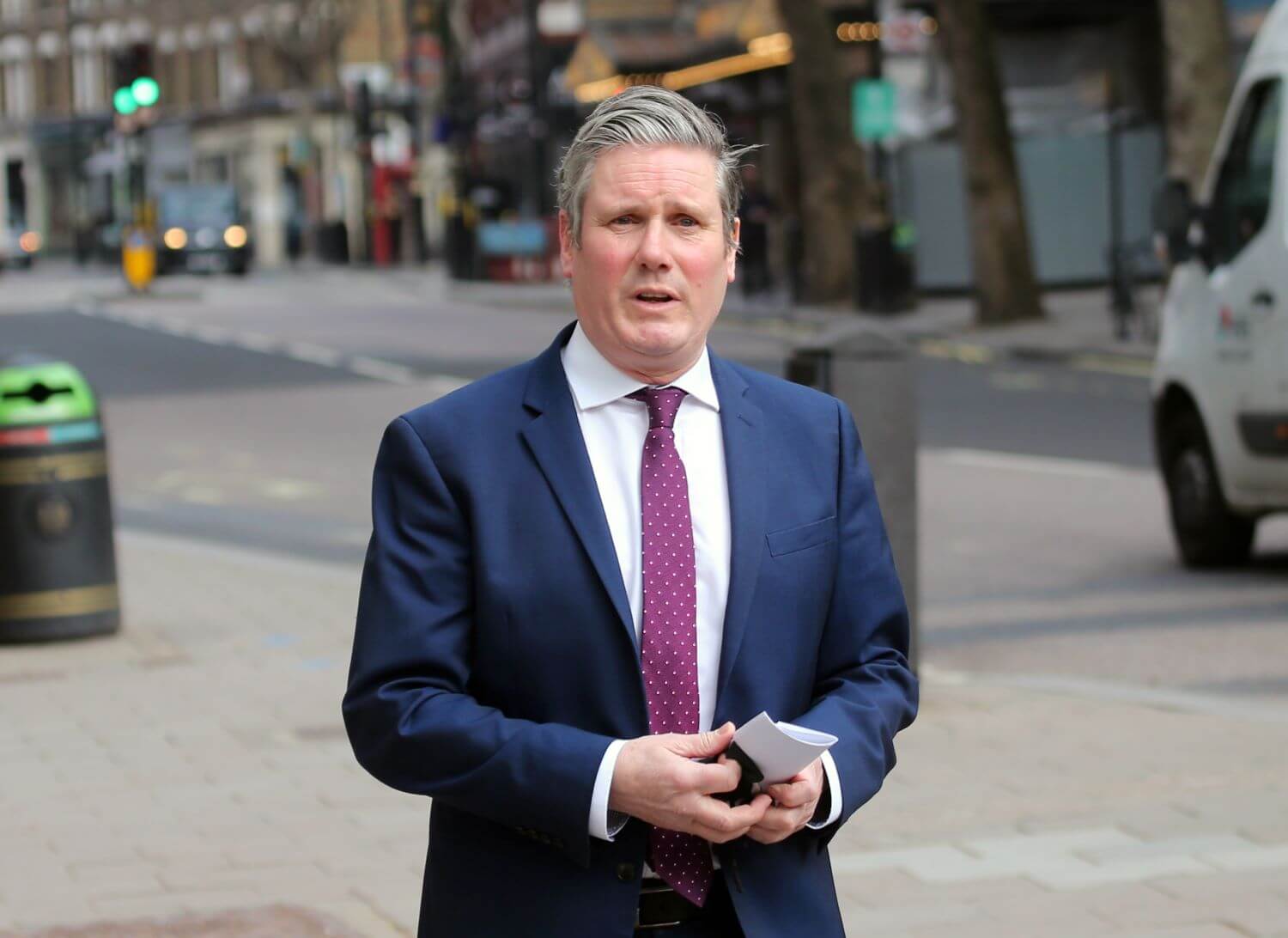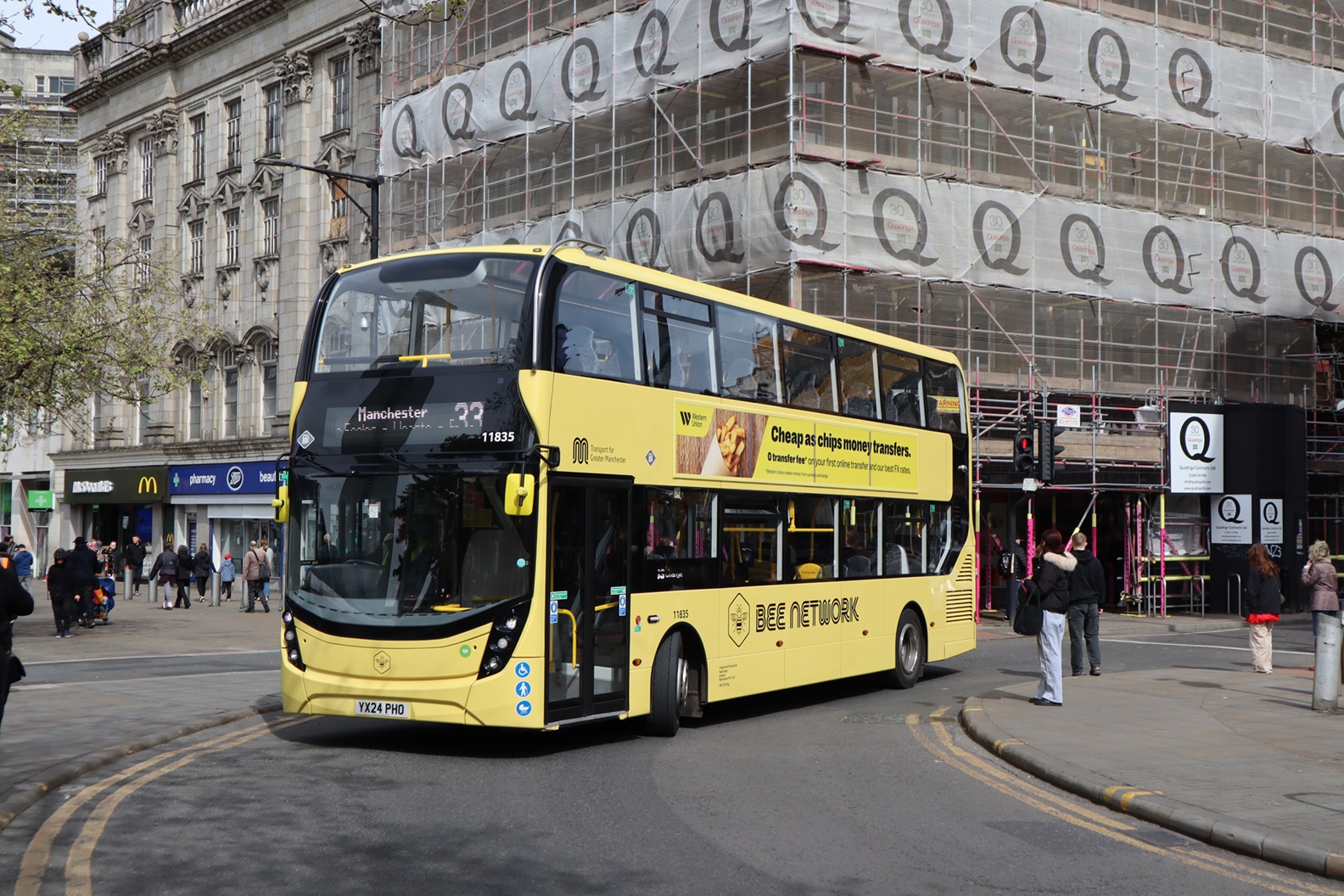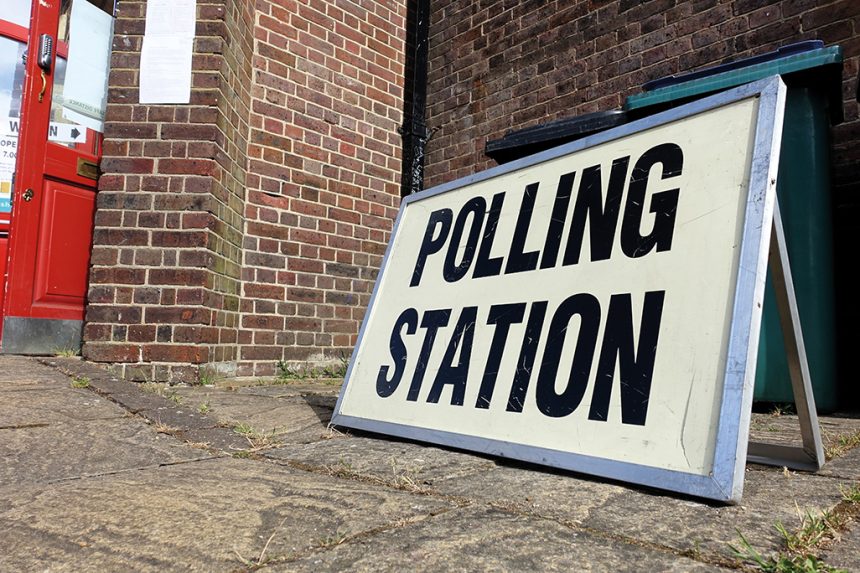Our politics expert offers a view on the surge in popularity of Reform UK, and what that might mean for coach and bus, and the transport sector
As the dust settles on the local elections held on 1 May, how might we expect both the Labour and Conservative parties to respond to the clear danger presented by Reform UK?
Coming hot on the heels of a strong performance at the general election last year – even if it returned only five MPs – any dispassionate interpretation of the outcome of this month’s elections suggests Reform UK is a real threat to both the main Westminster parties.
The Conservatives suffered their lowest share of the vote at local elections since records began, following the worst general election performance in the party’s history. Quite the record!
Reform UK is labelled a right-wing party but is picking up support from traditional Labour voters in large numbers
Further, worryingly for the Conservatives, their support is draining away to both Reform UK on the right and the Lib Dems on the centre-left.
Just as troubling for Labour, support for the party in its traditional heartlands is evaporating, hinting that the “working class” no longer thinks it represents it.
Reform UK is labelled a right-wing party but is picking up support from traditional Labour voters in large numbers. Nigel Farage’s claim that Reform UK now represents the “working man” and that the historical two-party duopoly is over looks, on the face of it, to have some legitimacy.
How will Labour react?
While the Conservative Party licks its wounds and debates whether some kind of deal with Reform UK should be seriously considered, the more immediate issue is how the Labour government will respond to the clear threat it now faces from a right-wing party.
Rumours that the winter fuel allowance may be reinstated were quickly denied by No 10, but I’m sure we will see some fresh initiatives on immigration.
Further, there is already talk of imposing stronger restrictions on visas for overseas students, for example.
However, that aside, what other policy U-turns or “resets” might we see? I’m not sure we will see that much, if only because the Prime Minister’s room for manoeuvre is so limited thanks to the dire state of the public finances.

Sir Keir Starmer’s comment that he will go “further and faster” is meaningless in the absence of a policy agenda that can be afforded and is fuelled by growth.
For sure, we will shortly have the publication of the government’s Industrial Strategy and the Strategic Defence Review, both of which will be presented in the context of the government’s growth agenda, as a plan for jobs and investment.
However, most economic commentators now expect further tax rises in the Chancellor’s autumn budget and the International Monetary Fund has slashed its forecast of growth for the UK economy.
These are not circumstances that provide much scope to go “further and faster”. We will see much activity, no doubt, and plenty of promises, but I wonder how much will be real, how much will really deliver what the electorate wants.
The danger for the government is that, after just 10 months in power, the electorate may already have made up its mind about the new administration’s performance and no amount of talk about going “further and faster” will reset the political dial.
The electorate already feels let down – even misled – by Mr Starmer’s election promises and, as the Conservatives discovered, once you lose the trust of the electorate, it’s a long, long time before that can be regained.
The call for ‘change’
Mr Starmer promised “change”. The electorate wants change, but of a different kind.
On 1 May, the electorate showed what kind of change it wants and it’s worth reflecting on why this is.
My view is that the electorate has wised up to the falsehood of relentless promises and slogans that dominate elections and political communications.
The recent elections intimate that the electorate has had enough of the established political parties in Westminster
The idea that simple, all-encompassing messaging can somehow be a political force that shapes outcomes is dying.
Remember the slogans of recent campaigns, such as “Things can only get better”, “A long-term economic plan”, “Strong and stable”, “Take back control”, “£350 million for the NHS”, “For the many not the few”, “Levelling up”?
All of those slogans proved hollow and delivered precious little, if anything at all.
Further, the relentless claims that a particular policy initiative or spending plan will make things better do not match people’s experience.
You only have to look at the NHS or the state of our roads to see that. Neither this nor any government can use a narrative to persuade the electorate that things are getting better.
Transport promises
The problem is that politicians over-promise and under-deliver. To bring this all back to transport, we will see this in spades with the government’s plans for buses and rail.
Bringing all rail passenger services back under public control will not improve reliability because, among many other things, signals will still fail, and engineering overruns will still happen.

Network Rail – currently the fully nationalised part of the railways – is already responsible for the majority of train delays and cancellations.
Bus franchising will not deliver the step-change in bus reliability that people want because that is largely driven by factors other than franchising.
Indeed, bus patronage in the regulated market in London is falling while it’s growing, if only slightly, in the mainly deregulated market outside London.
Time for Reform UK to prove itself
The recent elections intimate that the electorate has had enough of the established political parties in Westminster and is willing to give others, principally Reform UK, a chance.
However, unless Reform UK can present itself as more than a single-issue party, and that it has more substance behind it than the clever rhetoric of Mr Farage, it may find that it will go the way of other insurgent parties.
Reform UK is about to find out that being in government – even if only local government – is a whole lot more difficult than being a noisy voice of opposition.



























